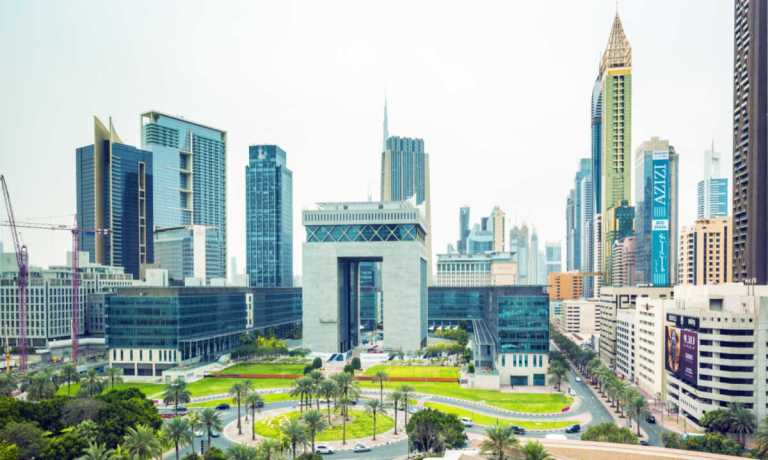
In news from the Middle East and North Africa (MENA), the United Arab Emirates is a cornerstone of the regional economy, attracting international investment and acting as a base for many global companies that do business in the wider region.
But more than just a focus of international interest, the UAE is also home to a thriving community of homegrown companies working in the realms of technology and finance. As these companies grow, they are increasingly establishing a MENA-wide footprint.
The World to the UAE
This week, United Bank for Africa (UBA) extended its operations to the UAE with the official launch of its new branch at the Dubai International Financial Center (DIFC).
The latest international branch for the pan-African financial services group is an indication of the growing importance of the UAE as a source of investment and strategic ally for African businesses.
“The authorities and business environment here in the DIFC is phenomenal, and UBA is seeing Dubai as the gateway for Africa and that is why we are here, to be closer to our clients, to be partnering with them and facilitate businesses and trade flows into Africa through the UBA franchise,” said UBA Group Managing Director/CEO Kennedy Uzoka said at the launch of the new branch, per a press release.
In other news that signals the UAE’s position as a powerhouse of international business, three UAE-based companies, New Technology Systems, Intertec and Konvexe, have partnered with Singaporean Block Armour and Blockchain WorxSG to expand blockchain enterprise solutions in the MENA region, according to a press release.
See also: The UAE’s Increasing Role as a Regional FinTech Hub
The collaboration will see the deployment of blockchain-powered infrastructure and systems to help organizations accelerate digital transformation programs.
The Emirati companies will begin by deploying Blockchain Worx’s Web3 Innovation Lab in the region to serve as a hub to showcase relevant solutions, explore new possibilities, and accelerate innovation while working together with enterprise and government clients to roll out a range of business-ready blockchain technologies.
It’s been an eventful week for the UAE’s cryptocurrency scene. Kraken MENA, one of the largest crypto exchanges in the region, announced that UAE citizens will be able to trade virtual assets in the Emirati Dirham (AED) using their local bank account thanks to a new partnership with the Abu Dhabi-based Rakbank, according to a Monday (July 18) press release.
Read also: High Smartphone Penetration, Govt Support Boosts UAE’s FinTech Growth
The UAE to the World
As well as attracting international attention to the country, the UAE is also home to many of the Middle East’s largest eCommerce businesses and is a critical hub for the sector in the wider MENA region.
For example, CNNB eCommerce Solutions, headquartered in Dubai, assists thousands of global businesses with its MENA-focused eCommerce operations. With regionally tailored solutions, CNNB helps international brands like Tom Ford and L’Oréal reach the growing MENA eCommerce market, which Zboomi reported is expected to be worth nearly $50 billion in 2022.
This week, CNNB announced in a press release its latest expansion into Kuwait, which will be the fourth country it opens offices in after the UAE, Saudi Arabia and Egypt. The latest expansion is a sign of the growing role of UAE-based businesses as important moving parts in the commercial engine of the MENA.
Another booming tech company that demonstrates the critical role the UAE plays as a regional business hub is Dubai’s Careem.
See also: Careem Makes Second Acquisition This Week With Denarii
This week, Careem Co-Founder and CEO Mudassir Sheikha told The National’s Business Extra podcast: “We have built a presence in almost 100 cities in the region, where if you want to come and build your services on the app, then we can give you the ability to light up the remaining 99 cities at the flick of a switch versus having to painfully go into every city and enable your service.”
He cited data that suggested eCommerce penetration in MENA currently sits at just 6% compared to 52% in China.
Read also: Careem Boosts Food Delivery Space Footing With MUNCH:ON Acquisition
This untapped market may suggest why the MENA region is somewhat bucking the trend when it comes to the quick commerce and food delivery spaces. As the sector lays off workers in Europe and America amid declining valuations and fierce competition for customers, in MENA, the aggregator and dark store delivery models are showing more promise.
See more: The Quick Seems Dead as Ultrafast Grocers Retreat En Masse
One example is the Dubai-based quick commerce platform veppy.com, which this week invited suppliers and sellers to register their companies and list their products online ahead of its commercial launch in the last week of August. In a press release announcing the news, Veppy stated that the quick commerce market in the MENA region is forecast to grow from $9 billion in 2020 to $20 billion by 2024.
Finally, this week, Emirati media outlet The Khaleej Times reported that delivery companies in the UAE are investing in their workers with higher wages and a range of measures to protect riders from the country’s scorching summer temperatures.
In Dubai, where the mercury has topped 40 degrees Celsius (104 degrees Fahrenheit) every day this week, delivery firm Talabat has launched lounge areas, air-conditioned touring buses, public refill stations and shaded rest areas with mist fans to ensure rider safety during the summer.
Talabat has also announced a pay raise and a more frequent salary schedule for delivery workers in the UAE this month.
For all PYMNTS EMEA coverage, subscribe to the daily EMEA Newsletter.